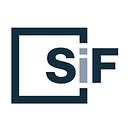Foundry@CES
By Silicon Foundry
As we enter a new year and a new decade, the Silicon Foundry team found itself contemplating the future at CES in Las Vegas last week. With 4,400+ exhibitors and 1,200+ startups from 160+ territories, it was a one-of-a-kind gathering of both the old guard and the new, all brimming with excitement at the technologies that could be in store for us this year.
Fun Fact: It is estimated that business executives save 3.4B miles in business travel by attending CES.
As Gary Shapiro, President and CEO of the Consumer Trade Association (CTA), described it: We may be on the precipice of a modern “Roaring 20s,” a decade of continued growth and expansion in both business culture and technology. Although many of the conference themes (AI, 5G, Smart Cities, Digital Health) are mainstays we have been familiar with for years, 2020 is the year we will begin to see a true evolution of these concepts. For example, we expect a shift from a digital world to a connected world while also underscoring the continued importance of our commitment to ESG initiatives, such as diversity & inclusion, and limiting our environmental impact.
From where Silicon Foundry sits, which is at the intersection of startups, investors and legacy enterprises, CES provides interesting insights to how the largest corporations and entities around the world view the future of their industries and approach innovation. Here’s just a small sampling of what our team and Members were up to at the conference.
Day 1
After a long first day navigating the conference, SiF convened a private dinner for our Members (Delta, Deutsche Telekom, Southwest, Standard Chartered) and others in our network to discuss and debrief on everything we had seen. For some it was their first time at CES, and for others the conference remains to be an unparalleled networking opportunity for them to be exposed to new technologies and scout for new partnerships.
A big topic covered at CES this year centered around the important role of innovation policy. With certain factors influencing innovation trends around the world, such as trade agreements and public concerns around privacy and AI, a strategic approach for government entities is more crucial than ever before. A balance must be struck when it comes to public policy. Governments should set guardrails to protect the public interest, but at the same time, it mustn’t shackle companies from experimenting and innovating — crucial activities that contribute to the success of the economy.
Within the U.S., the CTA has closely monitored the role of state governments and tracked them on an ‘innovation scorecard’ based on their policies, resources and programs (e.g., apprenticeships for labor). This year, 15 states were recognized as “Innovation Champions,” including two SiF Members, the Arizona Commerce Authority (ACA) and the Michigan Economic Development Corporation (MEDC).
Day 2
The morning of January 8th, SiF brought together a curated group of senior executives, founders, investors and public sector officials for a roundtable with Lieutenant Governor Gilchrist of Michigan that drove candid dialogue about how the public and private sectors can collaborate to effectively and rapidly test, deploy and scale new technologies and infrastructure systems to support advanced mobility and smart cities. The conversation covered topics ranging from new capitalization models and iterative approaches to policy to data governance and standard-setting around communication protocols.
As the first airline ever to headline the conference, Delta Airlines was front-and-center talking about its innovation journey and what the future of air travel could look like in 2020. Driven by the company’s motto of “Keep Climbing,” they underscored the importance of applied innovation, and cautioned against innovation theater and doing something for appearance’s sake. A few key messages we gleaned from Delta’s keynote include:
- Think big, start small, scale fast. Delta engages with 600K customers every 15 minutes (the population of Vancouver every hour)! It’s important to prepare for scale early on, but also to pressure test your solution in smaller, controlled environments to make sure that your real-world deployment can meet all of the consumer’s expectations.
- Know your customer. In order to help them understand the most stressful points of its customers’ travel journey, Delta outfitted its customers with Fitbits and asked them to video record their end-to-end flying experience. This data, in turn, helped them understand the different engagement points where Delta can provide a differentiated service that results in a more pleasant journey overall.
- Own the journey. During its keynote, Delta presented its vision of how they can add value from home-to-hotel for one of its customers; from partnering with Lyft to providing multimodal transport options to the airport to pioneering “parallel reality” with Misapplied Sciences.
Although these are just a few examples of what we saw at CES, there were thousands more innovations showcased that reflect the ever-growing and evolving definition of consumer technology. We, here at Silicon Foundry, are excited to see what’s coming next!
